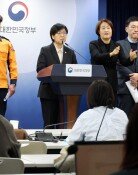[Op-Ed] Remembering a Great Novelist
[Op-Ed] Remembering a Great Novelist
Posted June. 27, 2009 08:23,
In 1964, the New York Times praised a new novel described as a great piece of work whose moral and psychological features are inherited from Dostoevsky and Camus. In the U.S., the novel remained on the bestseller list for 20 straight weeks. The Martyred was the debut work of Korean-American novelist Kim Eun-guk, also known as Richard E. Kim, and helped introduce Korea to American authors. In 1969, Kim became the first Korean candidate for the Nobel Prize for Literature.
The Martyred is a mystery about pastors who became martyrs during the Korean War. The book, however, carries messages from the author on conflicts of the soul stemming from hardship and existence amid despair, reality and hypocrisy. In the Korean-language version of his book, he wrote a message for his Korean readers saying, When you think of the title, do not take religion too seriously. Instead, I hope you put more emphasis on the meaning of death for cause.
Born in Hamhung, South Hamkyong Province, in what is present-day North Korea, Kim enrolled in Seoul National University in 1947. After the Korean War broke out, he worked for the Republic of Korea Army as an interpreter instead of studying. With the help of an American general, Kim went to the U.S. and earned his bachelors degree. While studying for his masters, he wrote The Martyred. The author also talked of Korean issues in his other books such as Lost Names, which deals with the 1961 military coup, and The Innocent, which is about the colonial Japanese governments policy to force Koreans to adopt Japanese names. His books also contain universal themes that have appeared across the world, however. The younger generation might not know Kim, but they probably saw him in a commercial in the early 1990s saying, "I want to meet a warmhearted person."
Kims novels and life focused on existential agony. His experience in the Japanese colonial rule of Korea, the countrys division, life in a foreign nation, and war were the features of his books. When I heard the news that he died at age 77 Tuesday at his home in Massachusetts, I was reminded of his first book and how it greatly impressed me as a young boy.
Editorial Writer Kwon Sun-hwal (shkwon@donga.com)







